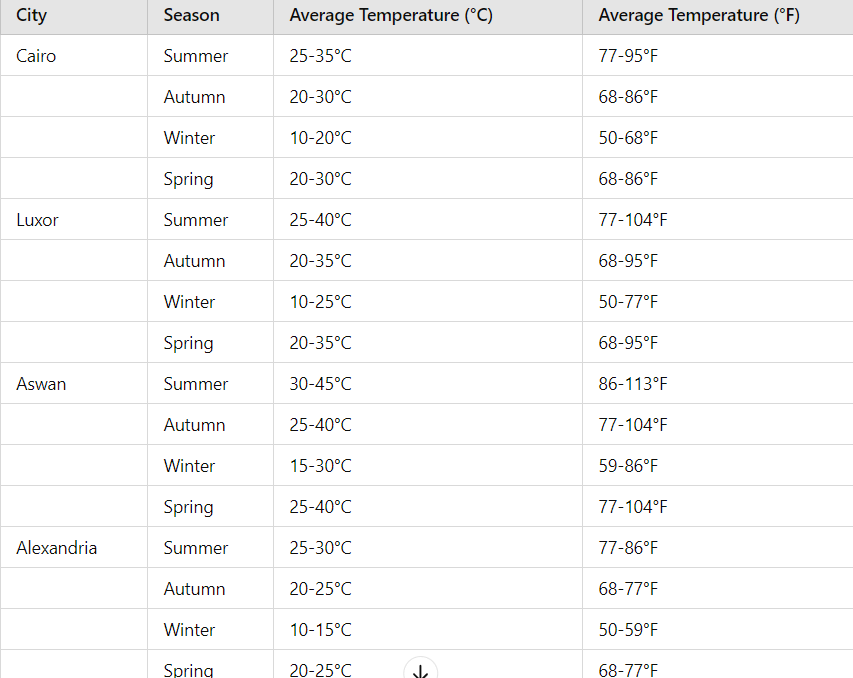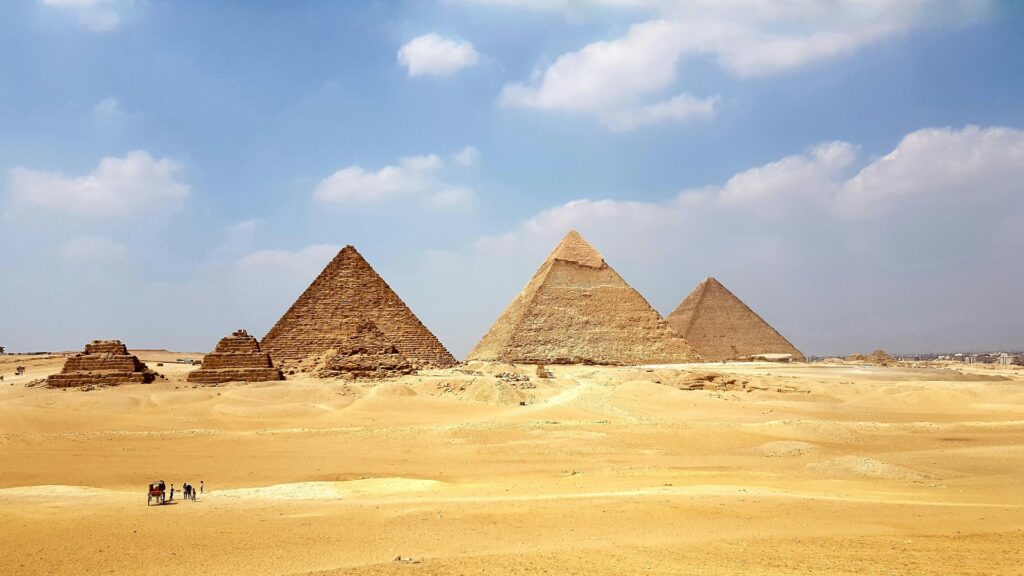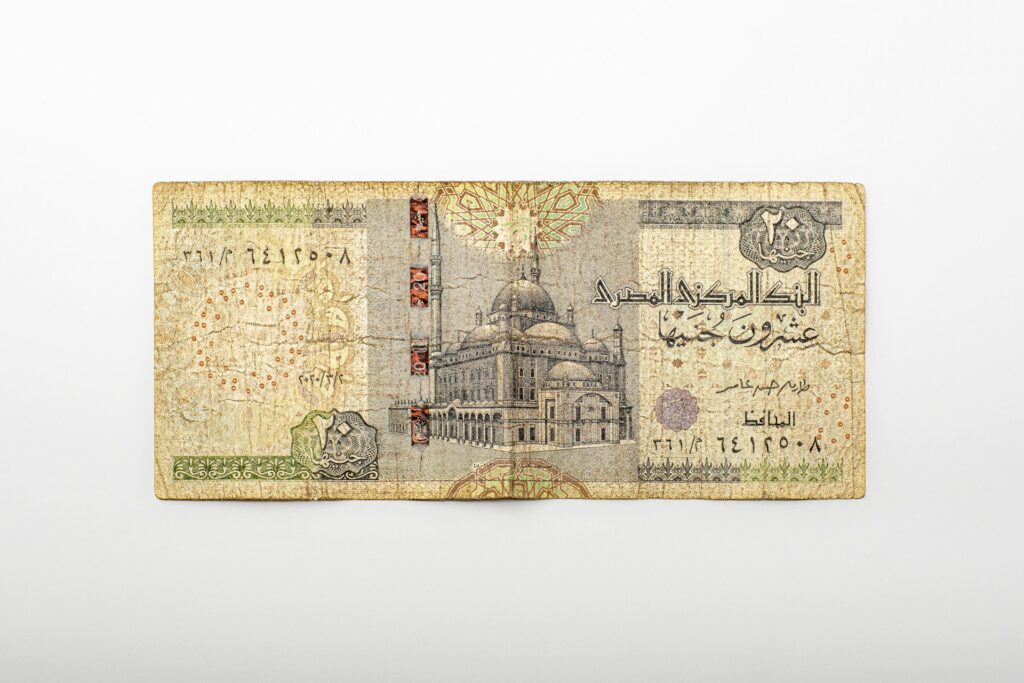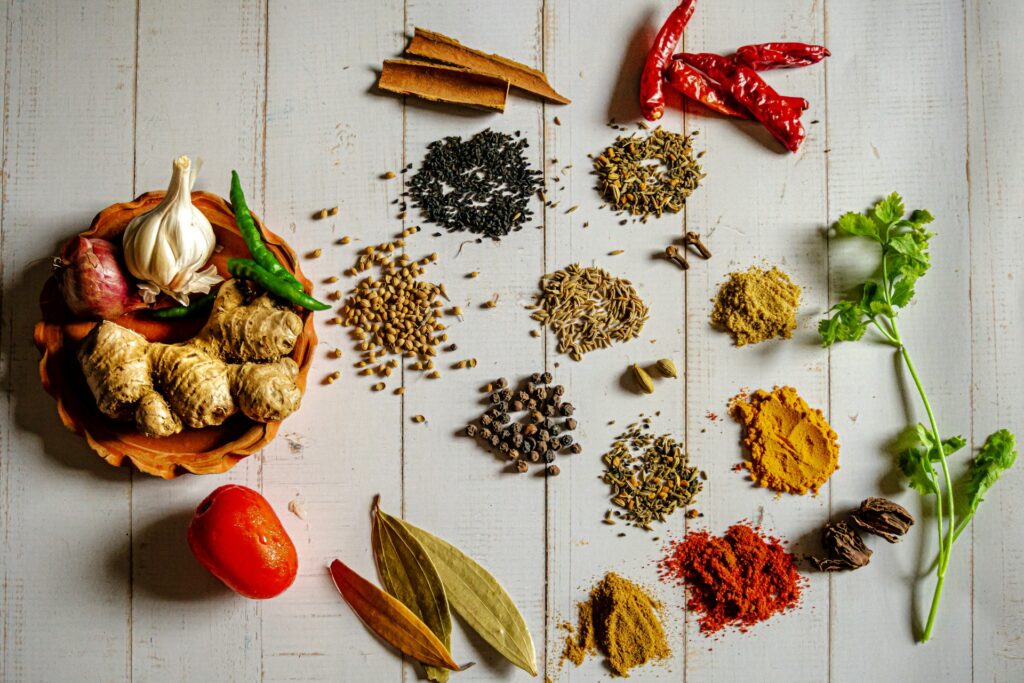Before Your Trip to Egypt
As you gear up for your adventure in Egypt, we’ve compiled all the essential information to ensure a smooth journey from start to finish. Whether you’re curious about visa procedures, what to pack for varying climates, cultural customs, or emergency contacts, we’re here to provide comprehensive guidance. Let’s delve into these details, empowering you to feel fully prepared and enthusiastic about your upcoming exploration of Egypt’s ancient wonders and vibrant culture.
The Weather in Egypt

Egypt experiences a hot desert climate, characterized by scorching summers and mild winters. In Cairo, summer temperatures from June to August often exceed 35°C (95°F), while winter temperatures from December to February range between 9°C (48°F) and 19°C (66°F). The coastal regions along the Mediterranean, such as Alexandria, enjoy milder temperatures, with summer highs around 30°C (86°F) and cooler winters, rarely dropping below 10°C (50°F). The Nile Delta and Valley see similar patterns but with higher humidity levels. Rainfall is scarce and mostly occurs during winter, especially in the north, with Alexandria receiving the highest annual rainfall of about 200 mm (7.9 inches). In contrast, southern cities like Aswan experience extreme heat, with summer temperatures frequently soaring above 40°C (104°F) and virtually no rainfall year-round, emphasizing the arid nature of Egypt’s climate.
How to Dress in Egypt – Seasonal Considerations
Spring
In spring (March to May), Egypt enjoys mild and pleasant weather, with temperatures ranging from 20°C (68°F) to 30°C (86°F). Light layers are ideal, such as long-sleeved shirts, light sweaters, and trousers. A light jacket can be useful for cooler evenings, and comfortable walking shoes are recommended for exploring.
Summer

Summer (June to August) in Egypt is extremely hot, with temperatures often soaring above 35°C (95°F) and even reaching 40°C (104°F) in some regions. Lightweight, loose-fitting clothing made from breathable fabrics like cotton or linen is essential. Hats, sunglasses, and sunscreen are crucial for sun protection. Sandals and open-toed shoes are preferred for comfort.
Autumn
Autumn (September to November) offers a gradual cooling, with temperatures ranging from 25°C (77°F) to 35°C (95°F). Light clothing is still appropriate, but layering can be useful for variable temperatures. Long-sleeved shirts, light sweaters, and trousers are recommended. A light jacket may be needed for cooler evenings.
Winter
Winter (December to February) in Egypt is mild, with temperatures ranging from 10°C (50°F) to 20°C (68°F). Warm layers are necessary, especially in the evenings. A medium-weight jacket, sweaters, and long trousers are advisable. In coastal and desert areas, temperatures can drop significantly at night, so a heavier jacket might be needed. Comfortable, closed-toe shoes are recommended.
The Currency in Egypt

The currency in Egypt is the Egyptian pound, abbreviated as EGP or LE. It is advisable for tourists to carry some cash in smaller denominations for everyday transactions, as not all places accept credit cards. ATMs are widely available in cities and tourist areas, but less common in rural regions. Currency exchange services are available at airports, banks, and major hotels.
Where to Exchange Money in Egypt?
In Egypt, you can exchange money at airports, banks, and currency exchange offices. Airports often have convenient exchange counters, though rates may be slightly higher. Banks generally offer better rates and are reliable options, with branches available in major cities and towns. Currency exchange offices, found in tourist areas and shopping districts, also provide competitive rates. Major hotels offer exchange services, but the rates might not be as favorable. ATMs are widely available in cities and tourist areas, allowing you to withdraw local currency directly using your debit or credit card. It’s a good idea to compare exchange rates and fees at different places to get the best deal. Always have some cash on hand, especially when traveling to rural areas where ATMs and exchange services are less common.
Tips for Exchanging Money in Egypt
When exchanging money in Egypt, compare rates at various locations, such as airports, banks, and currency exchange offices, to find the best deal. Banks generally offer reliable rates, while exchange offices in tourist areas can be convenient. ATMs are a good option for withdrawing local currency directly with your card, but check for any international fees your bank may charge. Always have some cash on hand, especially when traveling to rural areas where ATMs are scarce. Avoid exchanging money on the street to prevent scams. Keep small denominations for everyday transactions, and ensure you receive a receipt for every exchange.
The Language in Egypt
In Egypt, the official language is Arabic, specifically Egyptian Arabic, which is widely spoken across the country. English is the most commonly spoken foreign language, particularly in urban areas and tourist destinations. In cities like Cairo, Alexandria, and major tourist sites such as Luxor and Sharm El Sheikh, many people, especially those working in tourism, speak English to a good degree. However, in rural areas and smaller towns, English is less commonly spoken, and communication might be more challenging. Learning a few basic Arabic phrases can be very helpful for travelers. Most signs in tourist areas are bilingual, in both Arabic and English, making navigation easier for English-speaking tourists.
The Necessary Documents and Emergency Contacts
Visa and Passport
To visit Egypt, tourists generally need a valid passport with at least six months of validity remaining. Many nationalities can obtain a visa on arrival at Egyptian airports, which is typically valid for 30 days. Alternatively, you can apply for an e-visa online before your trip. Some nationalities might require a visa in advance from an Egyptian consulate or embassy. It’s important to check the specific visa requirements for your country before traveling. Always carry your passport with you, as you may need it for identification at hotels and security checkpoints.
Travel Insurance
You must have travel insurance with a minimum medical, evacuation and repatriation coverage of US$50,000 covering all applicable dates of travel with the Tour Operator. This insurance must cover personal injury and emergency medical expenses. On the first day of each Tour, a representative of the Tour Operator will verify that you have sufficient insurance in place. You are strongly recommended to extend your coverage to include cancellation, curtailment, and all other expenses that may arise as a result of loss, damage, injury, delay or inconvenience while traveling. You acknowledge that insurance coverage is not included in the cost of any Tour offered by the Tour Operator, and you are required to obtain separate coverage at an additional cost. It is your responsibility to ensure that you have sufficient coverage and comply with the terms of the applicable insurance plans. You are responsible for advising your insurer of the type of travel, destination(s) and activities included in your booking so that the insurer may provide appropriate coverage.
Travel Vaccines for Egypt
Before traveling to Egypt, it is recommended to be up to date on routine vaccines such as measles-mumps-rubella (MMR), diphtheria-tetanus-pertussis, and polio. Additionally, vaccines for hepatitis A and B, typhoid, and rabies are advised, particularly if you plan to visit rural areas or stay for an extended period. For some travelers, the yellow fever vaccine is required if arriving from a country with risk of yellow fever transmission. Consult with a healthcare provider six to eight weeks before your trip to ensure you receive the necessary vaccinations and health advice tailored to your itinerary.
Essential Emergency Numbers in Egypt
In Egypt, for specific services, you can use the following numbers:
- Police: 122
- Tourist Police: 126
- Medical Emergencies: 123
- Fire Brigade: 180
Additionally, for roadside assistance, you can contact the Automobile and Touring Club of Egypt (ATCE) at 19263. It’s important to have these numbers readily available for quick access in case of emergencies while traveling in Egypt.
Vegetarian, Vegan and Gluten-free Eating in Egypt

In Egypt, vegetarian and vegan options are available, especially in larger cities and tourist areas. Traditional Egyptian cuisine offers a variety of vegetable-based dishes like falafel, hummus, foul medames (fava beans), and stuffed vine leaves (warak enab). Many restaurants understand dietary preferences and can accommodate requests for vegetarian or vegan meals.
For gluten-free options, it can be more challenging as Egyptian cuisine often includes bread and wheat-based products. However, rice and grilled meat or fish dishes are generally safe choices. It’s advisable to communicate your dietary needs clearly to restaurant staff to ensure your meal is prepared accordingly.
In tourist areas, you may find international restaurants and cafes that offer more extensive vegetarian, vegan, and gluten-free menus. Additionally, supermarkets in major cities stock imported gluten-free products and alternative ingredients.
Travelers with specific dietary requirements should research local eateries in advance and carry snacks or portable meals for convenience, particularly when visiting more remote or less touristy locations in Egypt.
Do’s and Don’ts in Egypt
Do’s
- Respect local customs and traditions, such as covering up when visiting religious sites.
- Bargain politely in markets (souks) for souvenirs and goods.
- Drink bottled water and stay hydrated, especially in hot weather.
- Try traditional Egyptian cuisine like koshari, falafel, and fresh juices.
- Learn basic Arabic greetings and phrases to communicate with locals.
Don’ts
- Don’t photograph military or government buildings without permission.
- Avoid public displays of affection, which can be considered inappropriate.
- Don’t drink tap water; stick to bottled water to avoid waterborne diseases.
- Avoid discussing sensitive political or religious topics with locals.
- Don’t litter or disrespect historical sites; Egypt has strict laws against damaging monuments.
What to Pack for Egypt
Travel Adapter for Egypt
In Egypt, the power sockets generally follow the European standard with two round pins, Type C and Type F sockets. Therefore, travelers from countries using plugs with different shapes, such as those from the United States or the United Kingdom, will need a travel adapter. It’s advisable to bring a universal travel adapter that accommodates various plug types to ensure compatibility with Egyptian sockets.
Most hotels and accommodations catering to international tourists may also provide adapters or have sockets that accept multiple plug types. However, it’s always prudent to carry your own adapter to avoid any inconvenience during your travels in Egypt.
Wifi Access and Mobile Connectivity in Egypt
In Egypt, accessing Wi-Fi and mobile connectivity is generally reliable, especially in urban areas and tourist destinations. Most hotels, cafes, and restaurants offer free Wi-Fi for guests, although the connection speed can vary. Major cities like Cairo and Alexandria have widespread 4G coverage, providing fast mobile internet access.
Travelers can easily obtain local SIM cards from mobile providers such as Vodafone Egypt, Orange Egypt, or Etisalat Egypt. These SIM cards are available at airports, convenience stores, and official stores of the providers. Purchasing a SIM card allows tourists to stay connected with affordable data plans for browsing the internet and making local calls.
In Your Suitcase
- Lightweight and breathable clothing, Egypt has a hot desert climate, so pack lightweight clothes made of breathable fabrics like cotton or linen to stay cool and comfortable.
- Sunscreen, Protect your skin from the strong sun rays with a high SPF sunscreen, especially if you plan to spend time outdoors.
- Comfortable walking shoes, You’ll be doing a lot of walking, so pack comfortable shoes suitable for exploring archaeological sites and markets.
- Modest clothing for religious sites, When visiting mosques and temples, it’s respectful to cover shoulders, arms, and knees, so pack lightweight long-sleeved shirts and trousers, and a scarf or shawl.
- Swimwear, If you plan to visit coastal areas like Sharm El Sheikh or Hurghada, pack swimwear for enjoying the Red Sea.
- Vitamins and probiotics, Boost your immune system and digestive health during your travels.
In your Daypack
- Water bottle, Stay hydrated throughout the day by carrying a reusable water bottle; it’s essential in Egypt’s hot climate.
- Sunhat and sunglasses, Protect yourself from the sun with a wide-brimmed hat and UV-blocking sunglasses.
- Hand sanitizer and tissues, Keep these handy for times when soap and water aren’t readily available.
- Camera or smartphone, Capture memories of Egypt’s stunning landscapes and ancient monuments.
- Guidebook or map, Navigate cities and archaeological sites with ease and learn about Egypt’s rich history.







